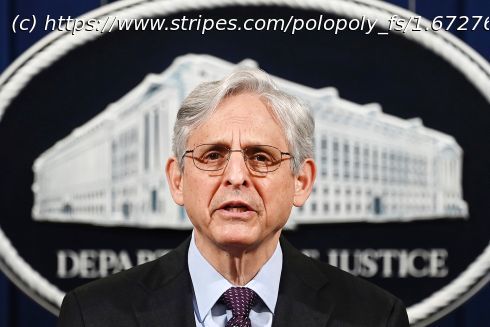The Justice Department is sending a strong message about its priorities these days. In just over the past two weeks, it has opened investigations of police in Louisville, Ky., and Minneapolis.
The Justice Department is sending a strong message about its priorities these days. In just over the past two weeks, it has opened investigations of police in Louisville, Ky., and Minneapolis. Federal prosecutors have charged four former Minneapolis police officers with civil rights violations in George Floyd’s death, and accused three men of hate crimes in the death of Ahmaud Arbery in Georgia. In both criminal cases, authorities moved forward with federal charges before most of the defendants have gone to state trial. Attorney General Merrick Garland is making good on his confirmation promise to refocus the department around civil rights after four years of tumult during the Trump administration, when such investigations waned and the focus was on curbing immigration and the Russia probe. “What we couldn’t get them to do in the case of Eric Garner, Michael Brown in Ferguson, and countless others, we are finally seeing them do,” the Rev. Al Sharpton said Friday after the charges were announced in Floyd’s death. Former Minneapolis officer Derek Chauvin has already been convicted of murder and manslaughter charges in state court and is scheduled to be sentenced June 25. The federal case could be insurance against a successful state appeal or a lenient sentence. Separately, federal officials accused Chauvin in a 2017 case involving Chauvin’s arrest of a 14-year-old boy. Chauvin hit the boy, who is Black, with a flashlight and pinned him to the ground, putting his knee on the boy’s neck and back. Chauvin’s lawyer, Eric Nelson, has filed a request for a new trial in Floyd’s death, citing a host of reasons, including publicity that was “so pervasive and so prejudicial… that it amounted to a structural defect in the proceedings.” He also argued that the trial judge, Peter Cahill, abused his discretion when he denied earlier requests to move the trial. Cahill has not said when he would rule on Nelson’s request for a new trial. Nelson had no comment on the federal charges.






